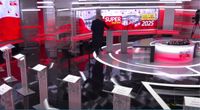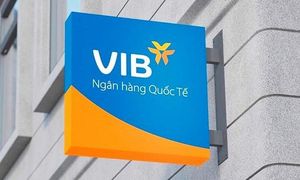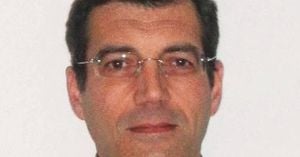On Monday, April 28, 2025, at 18:00, a historic presidential debate organized by Super Express commenced, featuring all thirteen candidates vying for the presidency of Poland. This unprecedented event included Artur Bartoszewicz, Grzegorz Braun, Magdalena Biejat, Szymon Hołownia, Marek Jakubiak, Joanna Senyszyn, Krzysztof Stanowski, Karol Nawrocki, Maciej Maciak, Sławomir Mentzen, Marek Woch, Rafał Trzaskowski, and Adrian Zandberg. The debate was marked by heated exchanges and controversial statements, reflecting the polarized political landscape as the nation approaches the presidential elections on May 18, 2025.
The debate's format differed significantly from previous discussions. It was divided into two rounds, with candidates allowed to question each other in the first round and present free statements in the second. The order of speaking was determined by a draw, starting with Adrian Zandberg and culminating with Karol Nawrocki.
During the first round, Zandberg confronted Braun, questioning his reluctance to label Russian President Vladimir Putin as a war criminal, despite Braun’s previous condemnation of Israeli Prime Minister Benjamin Netanyahu. Zandberg challenged, "You said that Prime Minister Benjamin Netanyahu is a war criminal. Civilian blood is also on Putin's hands. Why do you defend yourself against openly saying that Putin is a war criminal?" Braun's response was equally provocative, stating, "Thank God we do not border the Jewish state located in Palestine, because then the genocidal policy advertised by ministers, rabbis, and generals in Israel could easily turn against us. Thank God, no one is promoting Russia as our dear friend either. As a delegate of our civilization to the regions where Moscow lies, that is the difference." He further argued for normalizing relations with Russia, emphasizing the need for good business deals.
As the debate progressed, tensions escalated. Sławomir Mentzen presented a video of Szymon Hołownia advocating for the adoption of the euro, questioning whether Hołownia had changed his stance. Hołownia retorted, "Times have changed, and today we are unable to adopt the euro." Meanwhile, Maciej Maciak stirred controversy by expressing admiration for Putin, which drew sharp criticism from other candidates. Magdalena Biejat condemned Braun's anti-Semitic remarks, asserting, "It is scandalous that such anti-Semitic filth presented by Grzegorz Braun goes unchallenged. I will not remain silent."
Throughout the debate, various candidates tackled pressing issues, including immigration, economic policy, and social justice. Zandberg challenged Nawrocki on the proposed cadastral tax, accusing him of wanting to protect billionaires. Nawrocki defended his position, stating, "I want to enshrine opposition to the cadastral tax in the constitution. I do not agree that my taxes are directed at the wealthy; on the contrary."
The candidates also addressed the future of Poland within the European Union. Hołownia questioned Trzaskowski about his commitment to depoliticizing State Treasury companies, while Jakubiak sought clarity on a potential referendum regarding Poland's EU membership. Mentzen, on the other hand, questioned Trzaskowski about his past statements on migrants, suggesting he had flip-flopped on the issue.
The debate was not without its lighter moments, as Trzaskowski brought a Polish flag to the studio, claiming it was left behind by Nawrocki after a previous debate. This symbolic gesture was met with a mix of amusement and skepticism from the audience.
As the debate drew to a close, candidates summarized their positions and visions for Poland. Zandberg emphasized the need to address healthcare queues and housing prices, while Hołownia called for a president who would build bridges rather than walls. Mentzen reiterated his belief that Poland has been trapped in a PO-PiS system for too long, positioning himself as a viable alternative.
Trzaskowski called for a united Poland, stating, "We need a president who can rise above political disputes. The stronger should always support the weaker." In contrast, Braun articulated a more nationalistic vision, calling for the restoration of Polish independence and an end to what he termed the "Ukrainization, Islamization, Judaization" of the country.
Biejat concluded by asserting that a vote for her represents a commitment to freedom, social justice, and human rights. Nawrocki, meanwhile, appealed for support, promising to lead Poland through challenging times with a strong presidency.
The debate showcased the stark contrasts in vision and policy among the candidates, setting the stage for a contentious election season. With the first round of voting just weeks away, candidates will undoubtedly continue to sharpen their messages and rally their supporters in the lead-up to May 18.




